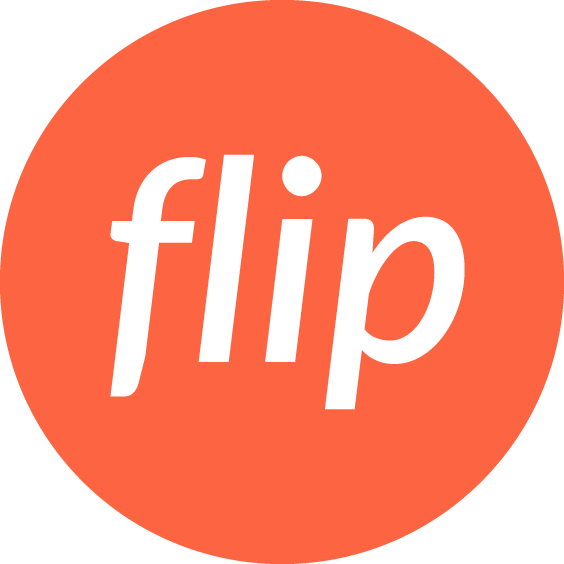Welcome to our very first tech blog. As we scale and power through our growth, there are many things we learn, often from our successes, but many a time from our failures as well. We have started this series to share our learnings and talk about how we are going about solving user problems by building product solutions, how we solve complex engineering problems, and what is our approach towards building user-centered design.
We hope this helps others who find themselves in a similar boat to make better decisions. So, let’s get started!
What is Flip
Flip is in the business of moving money. We help Indonesia move money, be it for individual users or businesses. We are on a mission to democratize moving money and make it as simple as flipping a coin–pun intended :)
How it started
We started by solving the problem of interbank transfer fees and built a solution to help users navigate across it. Flip was created by 3 engineering students who in their college life experienced the hassles of transferring money across banks. While not having any prior experience in building a product, the founding team built our first “MVP” using Typeform, their personal bank accounts to fund transactions and shared it with friends and family.
Very quickly, the demand exploded outside the small circle and they had to keep people on a waitlist, as with the limited capacity, the team was not able to manage this quick growth. But it did give us a validation that we were on to something big, which can help solve the pain for millions of people. Since then, we have just continued to iterate, grow, and never looked back.
Over the years, as we saw product-market fit and larger adoption of our product, we diversified our product portfolios while keeping the foundational value the same. Today, we support money transfers for users, e-wallet top-up, international remittances, bill payments, disbursement for businesses, and giving merchants the ability to accept payments from their customers.
Looking back, it definitely feels that we have come a long way. From physically taking cash to deposit offline in real banks (yup, that’s what we did!) to processing billions of dollars worth of transactions every month today through our payment rails. From 10 employees to over 350 employees. From a Typeform to one of the highest-rated fintech apps in Indonesia used by millions of people.
Since its inception, Flip has helped over 7 million users, move billions of dollars while collectively saving many millions of dollars for them. On average, each of our transacting users has saved close to IDR 250k, which is good enough to buy martabaks for your entire neighborhood :)
Tech behind Flip
In the early days, up until mid-2019, we had a very very lean team who was responsible for building our products and technology. It was referred to as the “dev team”, with 2 of the 6 members being the co-founders themselves. There wasn’t much separation in terms of domain, context, scope, and our team worked in a full stack manner with mobile engineers also writing the code for the backend and testing applications end to end.
But to achieve our vision of being the fairest and most customer-centric fintech company, we need to scale our team. It was also important that our teams are well structured, with strong foundations, autonomy, independence, and clarity of purpose to plan for the long term.
Hence, last year we did a reorg and laid the foundations of PED as an organization within Flip. PED stands for Product, Engineering & Design and is the term we used to address a combination of these 3 functional teams. We have combined them as a unit, as specialists from these teams need to come together to solve a common user problem. So, 1 user, 1 problem, 1 team, and 1 dream.
We have divided the PED organization into 3 product groups, each focusing on a particular user segment. Each group is further divided into product pods, which are basically large teams focusing on solving related problems. Finally, based on the complexity and scope, a pod is further divided into streams based on the scope of each pod. Streams are the smallest unit of a team responsible for planning and executing a roadmap, and it focuses on an individual problem statement. This structure helps us plan for the long term in terms of the scope and scale of each team with time and not just have feature teams. It will be unfair to put this across as our own innovation, as structuring teams as such was our learning from observing great product-driven companies.
From our humble beginnings with 6 people, we have now grown to over 100 people within PED while building a strong culture to promote individual and organizational growth.
Let’s talk more about our Culture
At Flip, we have a culture that promotes ownership, accountability, and innovation. We believe in extreme ownership and high agency in our teams while providing support, guidance, and continuous feedback from the leadership. We embrace failures as they help us learn, but also continue to raise the bar for ourselves and our team. We believe that if we continue to do what we used to and how we used to, then perhaps we are not learning and growing. Therefore, we prioritize the learning of our team members and provide them with mentoring and financial support to accelerate their learning through courses, boot camps, webinars, and more.
Striving for constant excellence can be demanding and can take a toll on our team members, and this is something that we acknowledge. Thus, we encourage teams to take out some time from work and unwind. We encourage teams to connect over some snacks (currently via virtual gathering, thanks to COVID 😒) and just talk about non-work-related topics. We also promote informal communication and banter within teams to have a friendly and safe work environment with a foundation based on mutual trust.
As a matter of fact, one of our most popular Slack channels is the one where employees can share “memes”!

So, what are the problems we are trying to solve
Similar to other high-growth tech startups, Flip too has to overcome challenges as we continue to move forward and beyond. We need to be laser-focused to ensure we convert these challenges into opportunities.
The immediate goal that we are chasing is to be synonymous with moving money in Indonesia. We want to be at the “top of the mind” when it comes to moving money. We just don't want to be good at it, but be the BEST at it. With this mission, some of the problems that keep us awake are:
- How to improve our speed, scale, and reliability of transactions so users can rely on us
- How to scalably add additional use cases for moving money to be more inclusive in using our products
- How to offer best in class service experience to respect our users’ time
- How to improve the security of our product so users can trust us
- How to build a product-driven organization for the future and leverage product-led growth
To address some of the above problems, we are undertaking strategic as well as short-term initiatives to ensure we make steady and continuous progress in addressing them. One of the important factors for us to be able to move quickly is to have the right team who can maintain high standards of performance and delivery.
Building a high-performance team requires inputs and effort on multiple dimensions, including a focus on hiring processes, clarity of engineering roles and responsibilities, balanced engineering and people processes, as well as technology solutions that can help to improve productivity and engagement. Being completely remote also requires us to further our focus on documentation and asynchronous communication.
We need to keep our engineering systems prepared to handle the current as well as the future needs that come with the scale of managing millions of daily transactions. This allows us to provide a great experience to the users who use Flip and for our engineers who build the systems. Some of the key areas we are focusing on right now are building platform capabilities as we continue to scale our automation and tests.
Over the years, as our systems grew and scaled rapidly, we faced a number of growing pains along the way that impacted the reliability of our services. It’s a great responsibility when people trust you with their money and hence, we need to ensure that we keep on improving our service’s reliability and security by increasing the maturity of our engineering practices and also adopting SRE best practices, that includes defining Service Level Objectives (SLOs) based on critical user journeys, having as much observability as we can gather and monitor to reduce blind spots.
While adopting the best practices of Continuous Delivery, we are always looking for areas to introduce automation, maintain a healthy balance of toils in our day-to-day operations, and often learn from blameless post-mortem sessions after every major incident. We are still in the early stages of being one of the most reliable fintech companies in the world, but we always aim high and aspire to become one in the near future.
Sounds like a lot of work, right? After all, Rome wasn’t built in a day. Great companies are built by great people who are ready to take up the challenge and go the extra mile. So, if you think you are ready to take the next leap in your career, join us!







